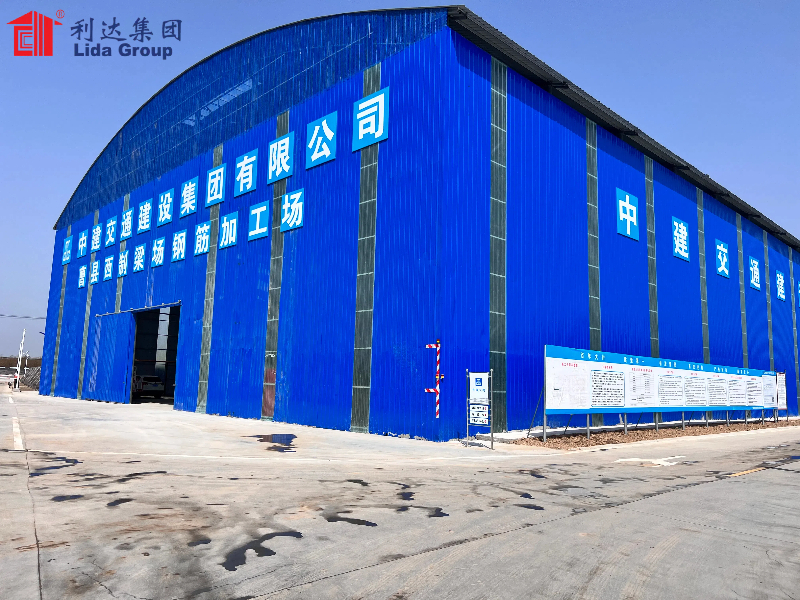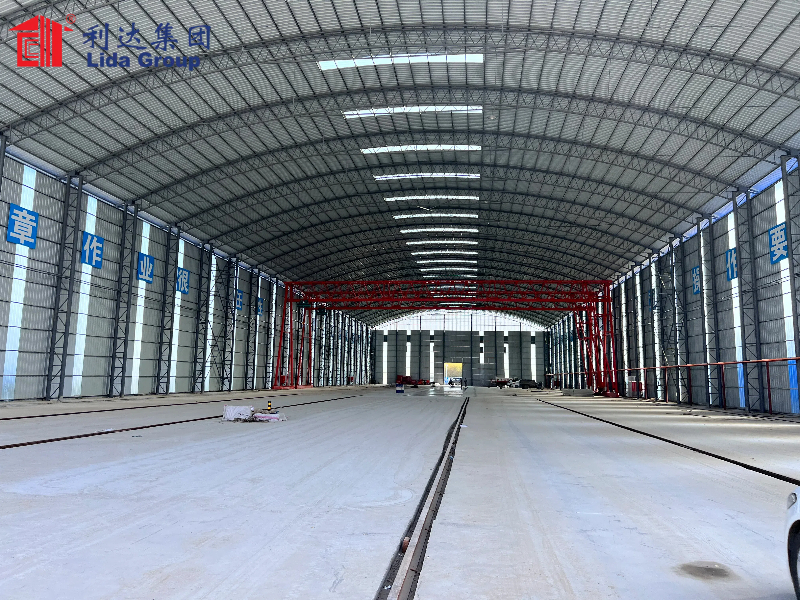Introduction
In the evolving landscape of modern manufacturing and craftsmanship, the need for efficient, durable, and versatile workshop spaces has never been more critical. As industries continue to advance and adapt to new demands, the traditional concept of workshops is being redefined. Lida Group, a leader in steel structure construction, is at the forefront of this transformation, offering innovative steel structures that cater to the diverse needs of workshops. This article explores the advantages of steel structures for workshops, the solutions provided by Lida Group, and the future of workshop design.
The Importance of Modern Workshops
1. Understanding Workshops
Workshops are essential spaces where various activities take place, from manufacturing and assembly to repairs and creative projects. They serve as the backbone for many industries, including automotive, woodworking, metalworking, and more. As businesses expand and evolve, the design and functionality of workshops must also adapt to meet new challenges.
2. Key Functions of Workshops
- Production and Assembly: Workshops are primarily used for the production and assembly of goods, requiring ample space and efficient layouts.
- Storage of Tools and Materials: Effective organization and storage solutions are crucial to keep tools and materials accessible and safe.
- Maintenance and Repairs: Workshops often serve as facilities for maintenance and repairs, necessitating specialized areas for equipment and machinery.
Advantages of Steel Structures for Workshops
1. Durability and Strength
One of the most significant benefits of steel structures is their durability:
- Long Lifespan: Steel buildings are designed to withstand harsh environmental conditions, ensuring longevity and reducing the need for frequent repairs or replacements.
- Resistance to Pests and Fire: Steel is impervious to pests like termites and is also fire-resistant, providing added safety and security for workshop operations.
2. Cost-Effectiveness
Steel structures can offer substantial cost savings:
- Reduced Construction Costs: The prefabrication of steel components reduces labor and material costs, leading to lower overall construction expenses.
- Lower Maintenance Costs: The durability of steel means less frequent repairs and lower long-term maintenance costs.
3. Flexibility and Customization
Steel workshops can be tailored to meet specific needs:
- Custom Designs: Lida Group offers customizable workshop designs that can accommodate various functions, workflows, and equipment needs.
- Adaptive Layouts: As business needs change, steel structures can be easily modified or expanded, allowing for greater flexibility in workshop operations.
4. Speed of Construction
The speed of construction is a critical factor for businesses:
- Quick Assembly: Prefabricated steel components allow for rapid on-site assembly, minimizing downtime and enabling businesses to start operations sooner.
- Efficient Project Management: Lida Group’s expertise in project management ensures that timelines are met, keeping projects on schedule.
5. Sustainability
Sustainability is increasingly important for businesses:
- Recyclable Material: Steel is one of the most recycled materials globally, making it an environmentally friendly choice.
- Energy Efficiency: Modern steel workshops can be designed to incorporate energy-efficient systems, reducing operational costs and environmental impact.
Lida Group: Innovating Workshop Solutions
1. Company Overview
Lida Group has established itself as a leader in the steel structure industry, specializing in the design and construction of steel buildings that cater to a wide range of applications. With a commitment to quality and customer satisfaction, Lida Group has successfully completed numerous projects, transforming the way workshops are built.
2. Comprehensive Services Offered
Lida Group provides a full spectrum of services to ensure the successful construction of steel workshops:
a. Design and Engineering
- Custom Solutions: Lida Group works closely with clients to design workshops that meet their specific requirements, from layout and storage solutions to workflow optimization.
- Advanced Engineering: Utilizing cutting-edge technology, Lida Group ensures that designs meet structural integrity and safety standards.
b. Manufacturing
- Prefabrication: Steel components are manufactured in a controlled environment, allowing for higher quality and precision in construction.
- Quality Assurance: Lida Group adheres to strict quality control measures, ensuring that every component meets the highest standards.
c. Construction Management
- Project Coordination: Lida Group manages all aspects of the construction process, from site preparation to final inspection, ensuring a seamless experience for clients.
- Skilled Workforce: The company employs a team of experienced professionals committed to delivering projects on time and to the highest standards.
d. After-Sales Support
- Maintenance Services: Lida Group offers ongoing support and maintenance services to ensure the longevity and functionality of steel workshops.
- Customer Feedback: Continuous improvement is a priority, and Lida Group values feedback from clients to enhance future projects.
Case Studies: Successful Steel Structure Workshops
Case Study 1: Automotive Repair Shop
Overview: A local automotive business sought to expand its operations by building a new repair shop.
Key Features:
- Spacious Design: The workshop featured large open spaces for multiple vehicles, allowing for efficient workflow and operations.
- Custom Workstations: Specialized workstations were designed for different repair tasks, optimizing productivity.
Results: The new workshop increased the business’s capacity to handle repairs and improved customer satisfaction due to faster service.
Case Study 2: Woodworking Studio
Overview: A woodworking company required a workshop that could accommodate large equipment and provide ample storage.
Key Features:
- High Ceilings: The steel structure allowed for high ceilings, facilitating the use of tall machinery and providing vertical storage options.
- Natural Lighting: Large windows were incorporated into the design to enhance natural lighting, creating a pleasant working environment.
Results: The new studio improved workflow efficiency and increased production capacity, allowing the business to take on more projects.
Case Study 3: Metal Fabrication Facility
Overview: A metal fabrication company needed a workshop designed for heavy machinery and equipment.
Key Features:
- Reinforced Structure: The design included reinforced steel to support heavy equipment and machinery.
- Customized Layout: The layout was tailored to facilitate the flow of materials and minimize handling times.
Results: The facility enhanced operational efficiency and reduced production times, leading to increased profitability.
Future Trends in Workshop Design
1. Automation and Technology Integration
The future of workshops will increasingly incorporate automation:
- Smart Technologies: The integration of IoT devices can enable real-time monitoring of equipment and workflow, enhancing efficiency.
- Automated Systems: Automated storage and retrieval systems can optimize space utilization and improve inventory management.
2. Sustainable Practices
Sustainability will continue to be a driving force in workshop design:
- Green Certifications: More businesses will pursue green certifications, emphasizing energy efficiency and environmental responsibility.
- Renewable Energy Integration: Future workshops may incorporate renewable energy sources, such as solar panels, to reduce operational costs and carbon footprints.
3. Enhanced Worker Well-Being
The design of workshops will increasingly focus on employee well-being:
- Ergonomic Designs: Workshops will incorporate ergonomic workstations and tools to enhance worker comfort and productivity.
- Collaborative Spaces: Creating areas for collaboration and social interaction will foster a positive work environment.
Challenges and Considerations in Steel Workshop Construction
While steel structures offer numerous advantages, there are challenges to consider:
1. Initial Investment
- Upfront Costs: The initial investment for steel construction may be higher than traditional methods, although this is often offset by long-term savings.
- Financing Options: Businesses should explore financing options that can help mitigate upfront costs.
2. Market Fluctuations
- Steel Prices: The cost of steel can fluctuate based on market conditions, affecting overall construction budgets.
- Supply Chain Issues: Disruptions in the supply chain can lead to delays in project timelines.
3. Regulatory Compliance
- Building Codes: Ensuring compliance with local building codes and safety regulations is crucial in the planning phase.
- Environmental Regulations: Businesses must also consider environmental regulations, particularly when incorporating sustainable practices.
Conclusion
Lida Group is leading the way in crafting the next generation of workshops with innovative steel structures that offer numerous economic and practical advantages. From durability and cost-effectiveness to flexibility and sustainability, steel structure workshops are transforming the landscape of modern manufacturing and craftsmanship.
As industries continue to evolve and adapt to new challenges, the demand for efficient and versatile workshop spaces will only grow. By investing in steel structures, businesses can position themselves for success in an increasingly competitive market.
Whether you are looking to expand your operations, optimize your workflow, or create a sustainable workspace, Lida Group is your trusted partner in delivering high-quality steel workshop solutions tailored to your specific needs. With a commitment to excellence and a focus on customer satisfaction, Lida Group is ready to help you craft the workshop of the future.
Contact Us
Post time: Dec-12-2024


